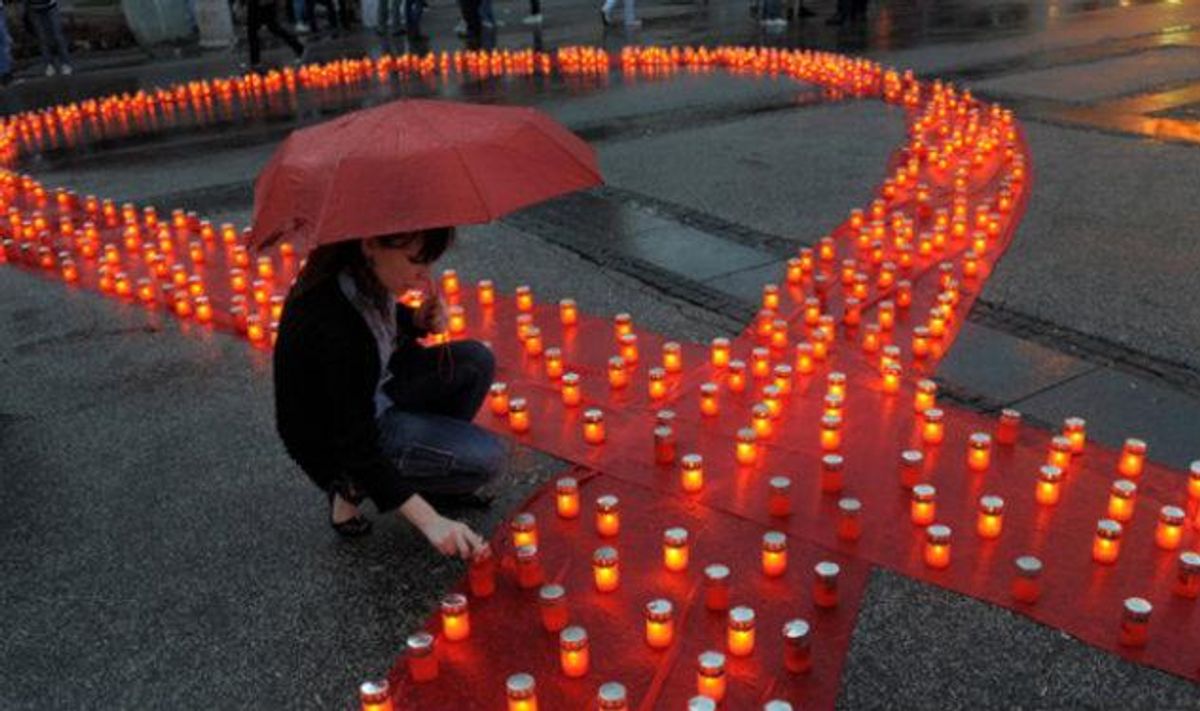News & Opinion
CDC Reports Rise In Unprotected Sex Among Gay Men

Health activists find this trend worrisome
December 03 2013 2:11 PM EST
February 05 2015 9:27 PM EST
By continuing to use our site, you agree to our Private Policy and Terms of Use.

In a report published in the Center for Disease Control and Prevention's Morbidity and Mortality Weekly Report, researches found that there has been a staggering rise in rates of unprotected sex among men who have sex with men (MSM). The study found that between 2005 and 2011, unprotected sex among MSM rose by nearly 20%, from 48% of MSM to 57%.
The study also points out that though MSM make up only a small percent of the population, in 2011 MSM accounted for the majority of people diagnosed with HIV in all but two states, Pennsylvania and South Dakota.
More worrying are the findings that of men who have HIV and do not know it, one third reported having unprotected anal sex with a negative partner or a partner who did not know their status, while just 13% of HIV-positive aware and 12% of HIV-negative MSM reported the same. According to the report, of MSM in 2011 who said they had been tested in the past 12 months, 5%--on average-- were HIV-positive but unaware. Only 67% percent of men, in 2011, reported having an HIV test in the past year.
According to The New York Times, there are many theories on why there has been an uptick in unprotected sex. One is that men have started "sero-sorting" or trying to have sex with men of the same HIV status (negative with negative, positive with positive). "The problem with sero-sorting is that it's really easy to get it wrong," says CDC director Dr. Thomas R. Frieden, whom The New York Times interviewed on the subject. "When one-third of men aren't even tested in the last year and a tenth of those who thought there were negative were actually positive, you don't want to risk your life on a guess."
Another hypothesis, according to Dr. Frieden and the CDC's directetor of HIV prevention, Dr. Jonathan Mermin: young gay men, who did not live through the AIDS crisis of the 80s and early 90s, don't know anyone dying of AIDS and therefore do not fear it or see it more as a chronic but treatable disease.
Perry N. Halktitis, a researcher at NYU whom The Times also interviewed sats that young gay men are still afraid of the disease. He attributes the rise of unprotected sex the fact that people on daily antiretroviral drugs are very unlikely to spread the disease, so men assume it is relatively safe to have sex with them (the catch is that the drugs have to be taken daily), and the recent economic collapse, which put many young men out of work. "We see higher-risk behavior when people have more risk in their lives," Halkitis told The Times.
The CDC recommends that all sexually active MSM should be tested at least annually and practice safe. For men at high risk for HIV, the CDC says, "taking preexposure or postexposure prophylaxis can reduce risk." Truvada is one such medication, but relatively few men take it.